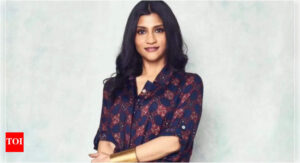The Changing Fate of Remakes: From surefire hits to uncertain gambles

For decades, remakes have been a staple of Bollywood, offering filmmakers a chance to repackage successful stories for new audiences. From blockbuster Hindi adaptations of South Indian hits to reimaginings of Hollywood classics, remakes were once seen as safe bets that could guarantee a strong box office performance. From Ajay Devgn’s Singham to Akshay Kumar’s Rowdy Rathore to Shah Rukh Khan’s Baazigar to Saif Ali Khan’s Race all have been remakes from south or from international films. However, the landscape of Indian cinema has changed drastically, and what once worked effortlessly no longer assures success.
Recent films such as Deva and Loveyapa have struggled at the box office, despite being remakes of successful South Indian films. Similarly, movies like Baby John, Sarfira, Bholaa, Selfiee, Shehzada, Vikram Vedha, and Laal Singh Chaddha have failed to meet commercial expectations, raising important questions about why the formula of remakes is no longer foolproof.
The Evolution of Audience Preferences
One of the key reasons why remakes are no longer guaranteed hits is the changing taste of the audience. Indian cinegoers today have access to diverse content across multiple platforms, including streaming services that bring regional and international cinema to their screens. This means that a significant portion of the audience has already seen the original films and may not feel the need to watch a remake, especially if it offers nothing new.
Take, for instance, Vikram Vedha (2022), a remake of the 2017 Tamil film of the same name. Despite the presence of Hrithik Roshan and Saif Ali Khan, the film failed to generate the kind of excitement that its original did. Many moviegoers had already watched the Tamil version, starring R. Madhavan and Vijay Sethupathi, and felt that the remake lacked freshness.
Similarly, Selfiee (2023), a remake of the Malayalam film Driving Licence, failed to draw audiences despite featuring Akshay Kumar and Emraan Hashmi. The original film had already been widely watched, and audiences found the remake unnecessary.
The Problem of Star-Driven Remakes
Bollywood has traditionally relied on star power to drive remakes, but this approach no longer guarantees success. Earlier, audiences would flock to theaters simply to watch their favorite stars, even if the story was familiar. Today, content has become the true king, and star-driven projects without strong narratives are facing rejection.
For instance, Bholaa (2023), a remake of the Tamil blockbuster Kaithi, had Ajay Devgn in the lead role, yet it failed to achieve the massive success of the original. The film’s over-reliance on VFX, style and action, rather than the gripping, raw storytelling of the original, left audiences underwhelmed.
Similarly, Shehzada (2023), starring Kartik Aaryan, was an adaptation of the Telugu hit Ala Vaikunthapurramuloo. While the original, featuring Allu Arjun, was a massive success, Shehzada did not replicate that magic. Audiences found Kartik’s portrayal less compelling, and the film suffered from an outdated approach to storytelling.Kartik was even found making a joke about Shehzada in his latest hit film Bhool Bhuliayaa 3 where he said , ‘ Ae bhai , mere samne kuch bhi bol magar yeh Shehzada word mat bol’
Remakes Struggling to Adapt to Bollywood’s Sensibilities
Another reason for the decline of remakes is the failure to adapt them effectively for a pan-Indian audience. Many remakes simply transplant the original script into a Hindi film without considering cultural nuances or the expectations of a Bollywood audience. This often leads to a disconnect.Though Shahid Kapoor’s Deva did try to adapt Mumbai Police to make it more palatable to Hindi audience but in doing so it took the most dramatic and shocking part of the film which was evenly responsible for it’s success out of the film.
On the other end is Laal Singh Chaddha (2022), a remake of the Hollywood classic Forrest Gump. The film struggled despite Aamir Khan’s involvement. While Forrest Gump was a celebrated film, its themes and storytelling style did not translate well for Indian audiences, leading to lukewarm reception.
Similarly, Sarfira, a remake of Soorarai Pottru, is facing skepticism. The original, starring Suriya, was a deeply rooted Tamil film with an emotional core that resonated with its audience. Whether the Bollywood version can capture the same authenticity remains to be seen.The film also became a victim of Akshay’s past releases which haven’t worked but those who did see the film call it Khiladi Kumar’s next performance in a long time.
Oversaturation of Remakes in Bollywood
The sheer volume of remakes in Bollywood over the past few years has also contributed to audience fatigue. When every other film is a remake, viewers start questioning the industry’s creativity and prefer fresh, original stories instead.
For instance, Baby John and Deva are both remakes of South Indian hits (Theri and Mumbai Police, respectively), but the excitement around them is limited. Audiences have seen similar adaptations fail before and may not be eager to invest in another rehash of a popular film.
The Rise of OTT and Regional Cinema’s Popularity
With the expansion of OTT platforms, audiences have direct access to regional films with subtitles, making them less inclined to watch their Bollywood remakes. In earlier decades, South Indian films were largely inaccessible to Hindi-speaking audiences, making remakes a fresh experience. Today, however, viewers can watch the originals on OTT platforms along with Hindi dubs on TV channels reducing the novelty factor of a remake.
For example, Kaithi, the original Tamil film that inspired Bholaa, was already available on streaming platforms. Many Bollywood fans had already seen it before Bholaa released, making the remake redundant. Similarly, Ala Vaikunthapurramuloo was widely watched before Shehzada hit theaters, making the latter struggle for relevance.
The era when remakes were surefire hits in Bollywood seems to be fading. The failures of films like Deva, Loveyappa, Selfiee, Shehzada, Bholaa, Vikram Vedha, and Laal Singh Chaddha highlight that audiences are no longer interested in recycled content unless it offers something truly fresh and compelling. With changing audience preferences, the rise of OTT, and growing access to original films, Bollywood needs to rethink its approach to remakes. Perhaps the future lies not in imitation but in innovation.








